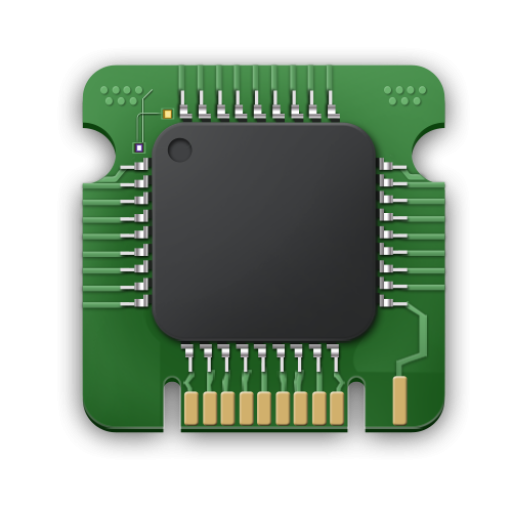The United Kingdom is experiencing a significant boost in economic growth, driven by rapid technological innovations that are transforming lives and reshaping society. Today, technology has evolved from basic tools to complex systems that impact every aspect of modern British life.
The pace of change is unprecedented, with advancements in various areas such as AI, communication networks, healthcare, and transportation. As we navigate this new world, it’s clear that technology is changing the way we interact with the world around us. For more insights on the current state of technology, visit TechHack to understand the generation of technology we’re living in today.
The Digital Revolution Transforming the UK Economy
The digital revolution is reshaping the UK’s economic landscape. The world has witnessed significant technological advancements that have transformed lives and economies. From the creation of primitive tools to modern machines, technology has paved the way for a more advanced society.
From Industrial to Digital: The UK’s Technological Evolution
The UK’s journey from the Industrial Revolution to the digital economy is marked by significant milestones. The steam engine, invented by James Watt in 1775, drove the First Industrial Revolution, shifting the economy from agriculture to industry. Today, the UK is at the forefront of the digital revolution, with technology transforming traditional industries and creating new ones.
Economic Impact of Technology in Modern Britain
Technology has had a profound impact on the UK’s economy. Digital technologies have reshaped business models, improved productivity, and changed consumer behavior. The digital sector’s contribution to the UK’s GDP and employment is significant.
| Year | Digital Sector’s Contribution to GDP | Employment in Digital Sector |
|---|---|---|
| 2018 | 7.4% | 1.4 million |
| 2020 | 8.2% | 1.6 million |
| 2022 | 9.1% | 1.8 million |
Artificial Intelligence and Machine Learning

The UK’s technological landscape is being revolutionized by artificial intelligence (AI) and machine learning. These technologies are transforming various sectors, from finance and manufacturing to healthcare and retail, by automating complex tasks and enhancing decision-making processes.
AI Applications Across UK Industries
AI is being increasingly adopted across different industries in the UK. In finance, AI algorithms are used for fraud detection and risk assessment. In healthcare, AI-powered systems are improving diagnosis accuracy and personalized medicine. The retail sector is leveraging AI for customer service chatbots and personalized recommendations.
How AI is Boosting UK Productivity and Innovation
AI is driving productivity improvements through data analysis, process optimization, and predictive capabilities. UK businesses are using AI to analyze vast amounts of information, identify trends, and make informed decisions. This is not only enhancing operational efficiency but also creating new business models and revenue streams.
As AI continues to evolve, it is expected to have a profound impact on the UK job market, creating new roles while changing traditional ones. The development of AI technology is also fostering innovation hubs and startups across the country, further solidifying the UK’s position in the global tech industry.
5G and Advanced Communication Networks

5G technology is not just an incremental upgrade; it’s a foundational shift in how the UK’s economy and society function. With faster data transfer rates and enhanced connectivity, 5G is poised to revolutionize various sectors.
Infrastructure Development
The rollout of 5G networks across the UK is a complex process involving significant infrastructure development. This includes upgrading existing cell towers and installing new ones to ensure comprehensive coverage. As of now, major cities are leading the way in 5G adoption, with ongoing efforts to expand into rural areas.
Economic Benefits
The economic benefits of 5G are multifaceted. Enhanced connectivity is enabling new business models and improving operational efficiency across industries. For instance, the growth of Internet of Things (IoT) applications in smart cities, manufacturing, and logistics is being supported by 5G. This technology is also reducing barriers to business growth, particularly in previously underserved areas.
As 5G continues to roll out, it’s expected to have a significant impact on the UK’s GDP and job creation. The real-time data processing and analysis enabled by 5G will create new opportunities for innovation, driving economic growth.
FinTech Revolution

The UK has emerged as a global FinTech hub, leveraging cutting-edge technology to drive innovation in financial services. This transformation is not just about adopting new tech; it’s about revolutionizing how financial transactions are conducted, making them faster, more secure, and accessible to a wider audience.
Digital Banking and Payment Innovations
Digital banking has transformed the way British consumers manage their finances, offering a more personalized and accessible banking experience. With the rise of mobile banking apps, users can now perform transactions, check balances, and even apply for loans online. This shift towards digital banking has also led to the development of new payment technologies, including contactless payments and open banking initiatives, enhancing the overall user experience.
Blockchain and Cryptocurrency Developments
Blockchain technology, often associated with cryptocurrencies like Bitcoin, has far-reaching applications beyond digital currency. It offers a secure way to store and share data, reducing the risk of fraud and increasing transparency. In the UK, blockchain is being explored for various uses, including securing voting systems and enhancing supply chain management. The UK’s regulatory approach to cryptocurrencies aims to balance innovation with consumer protection, fostering a conducive environment for businesses to thrive.
The FinTech revolution in the UK is not only about technology advancements; it’s also about improving financial inclusion and providing services to previously underbanked populations. By leveraging the internet and enhancing security measures, FinTech companies are making significant strides in various areas of financial services, contributing to economic growth and job creation.
Green Technology and Sustainable Solutions

As the UK shifts towards sustainability, green technology is playing a crucial role. The focus on environmental tech is not only helping the planet but also driving economic growth.
Renewable Energy Innovations
The UK’s renewable energy sector is experiencing significant growth, with innovations in wind, solar, and tidal energy leading the way. These advancements are creating new job opportunities and stimulating local economies across various regions.
Sustainable Manufacturing and Carbon Reduction Technologies
Sustainable manufacturing technologies are helping UK businesses reduce their carbon footprint while improving efficiency. Additionally, carbon capture and storage technologies are being developed to further reduce carbon emissions, contributing to a cleaner environment.
The integration of green technology in various industries is not only beneficial for the environment but also opens up new export opportunities for British companies. Government policies and incentives are supporting the growth of this sector, fostering innovation and investment in clean tech areas.
By embracing green technology, the UK is taking significant steps towards a more sustainable future, balancing economic growth with environmental stewardship.
What Are the Technological Innovations in Healthcare Driving Growth?
The healthcare technology landscape in the UK is rapidly evolving, leading to enhanced patient care and economic expansion. Technological innovations in healthcare are improving patient outcomes while creating new opportunities for economic growth.

Advances in Medical Technology
The UK is witnessing significant advancements in medical technology, including the development of sophisticated medical devices and diagnostic equipment. These innovations are being driven by UK companies and research institutions, resulting in improved patient care and more efficient healthcare services. The NHS is also adopting and implementing new medical technologies to enhance efficiency and patient care.
Digital Health and Telemedicine
The growth of digital health platforms and applications is transforming the way healthcare is delivered in the UK. Telemedicine has become increasingly popular, allowing patients to consult with healthcare professionals remotely. This shift has been particularly significant in recent times, with telemedicine helping to reduce the burden on healthcare facilities while maintaining patient care. Additionally, healthcare data analytics is enabling more personalized and preventative approaches to medicine, further enhancing patient outcomes.
These healthcare innovations are not only improving patient care but also creating new business opportunities and attracting investment to the UK. As the healthcare technology sector continues to evolve, it is likely to drive further growth and economic expansion in the region.
Advanced Manufacturing and Industry 4.0

The UK’s manufacturing sector is undergoing a significant transformation thanks to advanced manufacturing technologies and Industry 4.0 concepts. This revolution is driven by the integration of digital tech with physical production systems, enhancing efficiency and productivity.
Robotics and Automation in UK Factories
Robotics and automation are key components of Industry 4.0, improving accuracy and reducing human error in mass production. Robots handle repetitive tasks, allowing workers to focus on more complex problems that require human ingenuity.
3D Printing and Additive Manufacturing
3D printing, or additive manufacturing, is another critical technology that’s changing industries such as healthcare and aerospace. It enables faster, more customized production, and is expected to exceed $50 billion by 2030, transforming the landscape of mass production.
These advanced manufacturing technologies are not only improving productivity but also enabling new product designs and customization capabilities. By leveraging computers and sophisticated tools, UK manufacturers can now produce complex products with greater precision.
The integration of Industry 4.0 concepts is creating more resilient and flexible supply chains for UK manufacturers, supporting the reshoring of production and creating high-skilled work opportunities in various areas of the country.
Internet of Things (IoT) and Smart Infrastructure

IoT technology is revolutionizing the way UK cities operate, making them more efficient and livable. The Internet of Things (IoT) is creating smarter, more efficient infrastructure across UK cities and industries.
Smart Cities Development
The UK is witnessing significant smart city initiatives that utilize connected devices to enhance urban services and quality of life. These initiatives are improving resource management in areas such as energy, water, and waste, making cities more sustainable.
IoT Applications in Business and Industry
IoT is transforming business operations across various industries in the UK by leveraging data and information to optimize processes. The integration of sensors and technology is enabling predictive maintenance and asset optimization, changing the way work is done.
As IoT continues to expand, it is creating new business models and service opportunities for UK companies, driving innovation and growth in the tech sector.
E-commerce and Digital Retail Innovations

UK retailers are leveraging technology to enhance the shopping experience, integrating physical and digital channels. This transformation is driven by the growth of online shopping and the need for a seamless consumer experience across all platforms.
Transforming the UK Retail Landscape
The rise of e-commerce has significantly impacted the UK retail sector, driving growth and changing consumer behavior. Retailers are adopting omnichannel strategies to provide a cohesive shopping experience, whether customers are shopping online or in-store.
Augmented and Virtual Reality in Shopping
Augmented Reality (AR) and Virtual Reality (VR) are revolutionizing the retail experience. AR allows consumers to visualize products before purchase, while VR creates immersive retail experiences and virtual showrooms. These technologies are not only enhancing the shopping experience but also helping UK retailers compete in a global marketplace.
By embracing these digital innovations, UK retailers can stay competitive, improve customer engagement, and drive business growth in an increasingly digital economy.
Cloud Computing and Data Analytics

Cloud computing and data analytics are revolutionizing how UK businesses operate and make decisions. By adopting cloud services, companies across various sectors are enhancing their agility and scalability. This technological shift is not only reducing IT infrastructure costs but also enabling more flexible working models.
The impact of cloud computing is multifaceted, improving business efficiency and facilitating data-driven decision-making. With the ability to access enterprise-level capabilities, UK startups and SMEs are particularly benefiting from these advancements.
Data-Driven Decision Making
Data analytics is enabling UK companies to gain deeper insights into customer behavior and market trends. By leveraging predictive analytics, businesses can anticipate market changes and customer needs, thereby improving operational efficiency and strategic planning.
Cloud Services Boosting Business Efficiency
Cloud services are playing a crucial role in enhancing business efficiency across the UK. By migrating to cloud-based systems, companies can reduce their operational costs and improve their overall productivity. This shift towards cloud technology is also fostering innovation and competitiveness among UK businesses.
Autonomous Vehicles and Transportation Technology

The development of autonomous vehicles in the UK is poised to redefine the future of transportation. Autonomous cars and delivery systems are being tested and implemented across the country, promising to make travel smoother and greener.
The UK is at the forefront of transportation technology, with various companies and research institutions leading the development of autonomous vehicles. This innovation is expected to revolutionize the way people and goods move around, making it safer and more efficient.
Self-Driving Cars and Delivery Systems
Self-driving cars and delivery systems are being developed to improve road safety and reduce logistics costs. Companies are investing heavily in technology to make these systems a reality, transforming the transportation landscape in the UK.
Autonomous delivery systems are particularly promising for last-mile delivery, reducing costs and increasing efficiency for UK businesses.
Economic Impact of Transportation Innovation
The economic impact of autonomous vehicles is expected to be significant, reducing congestion and accident costs. As technology advances, it will reshape urban planning and infrastructure development in UK cities, making transportation more efficient and sustainable.
By improving efficiency and reducing costs, tech innovations in transportation will have a positive impact on the UK economy, changing the way people live and work.
The Future of UK’s Technology-Driven Growth
With technology at its core, the UK’s economic future is being rewritten by the advent of new tools and innovations. The convergence of artificial intelligence, IoT, and 5G is creating new opportunities for growth and innovation. As we look to the future, it’s clear that technology will continue to play a pivotal role in driving the UK’s economic growth and societal changes.
The UK’s position as a global technology leader is not without its challenges, particularly post-Brexit. However, by fostering education and skills development, the UK can continue to attract talent and drive innovation. Emerging technologies in healthcare and health tech are expected to have a significant impact, improving outcomes and efficiency. For more insights on the different types of information technology, visit TechHack.
To ensure time-efficient growth, the UK must adopt inclusive policies that distribute the benefits of technology across all regions and demographics. By doing so, the UK can maximize the potential of its technology-driven economy, making the most of the available tools and innovations to reduce its carbon footprint and enhance the quality of life for its citizens.
FAQ
How is Artificial Intelligence being used in UK industries?
AI is being applied across various sectors, including healthcare, finance, and manufacturing, to boost productivity and drive innovation.
What is the impact of 5G networks on the UK economy?
The implementation of 5G networks is expected to enhance connectivity, driving economic growth and enabling new technologies such as IoT and autonomous vehicles.
How is FinTech revolutionizing the UK financial sector?
FinTech is transforming the financial landscape through digital banking, payment innovations, and blockchain developments, making financial services more accessible and efficient.
What role is Green Technology playing in reducing the UK’s carbon footprint?
Green Technology is crucial in reducing the UK’s carbon footprint through renewable energy innovations and sustainable manufacturing practices.
How is Cloud Computing benefiting UK businesses?
Cloud Computing is enabling businesses to make data-driven decisions and boosting efficiency through scalable and flexible cloud services.
What are the benefits of Autonomous Vehicles in the UK?
Autonomous Vehicles are expected to have a significant economic impact, improving road safety and reducing congestion through the introduction of self-driving cars and delivery systems.
How is E-commerce changing the UK retail landscape?
E-commerce is transforming the retail sector through digital retail innovations, including the use of augmented and virtual reality in shopping experiences.
What is the significance of Internet of Things (IoT) in UK’s Smart Cities development?
IoT is playing a crucial role in Smart Cities development, enabling the creation of more efficient and sustainable urban environments through IoT applications in various sectors.







